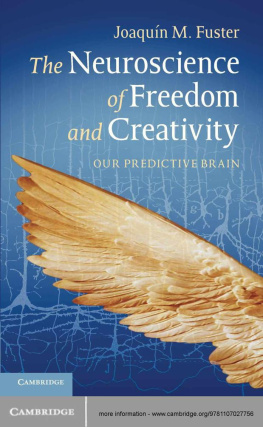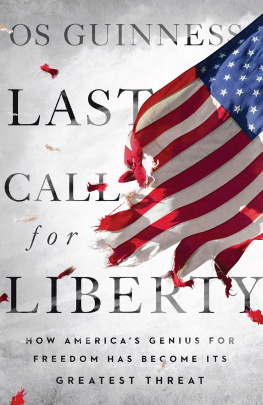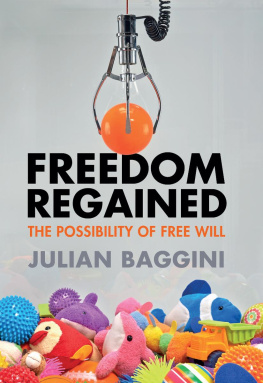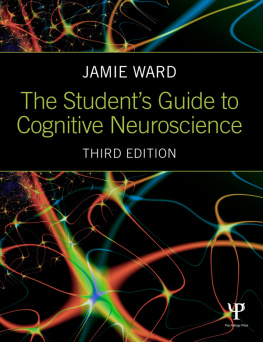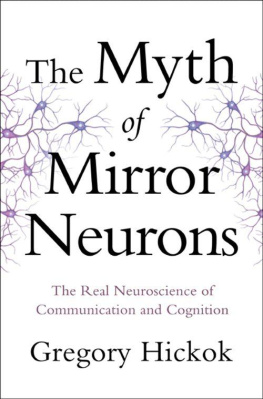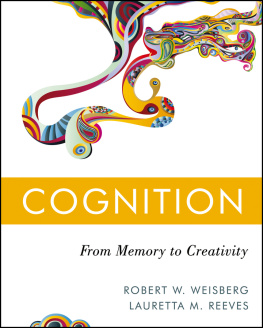The Neuroscience of Freedom and Creativity
Professor Joaqun M. Fuster is an eminent cognitive neuroscientist whose research over the last five decades has made fundamental contributions to our understanding of the neural structures underlying cognition and behavior. This book provides his view on the eternal question of whether we have free will. Based on his seminal work on the functions of the prefrontal cortex in decision-making, planning, creativity, working memory, and language, Professor Fuster argues that the liberty or freedom to choose between alternatives is a function of the cerebral cortex, under prefrontal control, in its reciprocal interaction with the environment. Freedom is therefore inseparable from that circular relationship. The Neuroscience of Freedom and Creativity is a fascinating inquiry into the cerebral foundation of our ability to choose between alternative actions and to freely lead creative plans to their goal.
JOAQUN M. FUSTER, M.D., Ph.D., is Distinguished Professor of Cognitive Neuroscience in the Brain Research Institute and Semel Institute for Neuroscience and Human Behavior at the University of California, Los Angeles. In the 1950s Professor Fuster pioneered the neurophysiology of cognition. He is the first to have discovered and described memory cells in the primate brain. He is the author of numerous peer-reviewed articles and three books: Memory in the Cerebral Cortex (), and The Prefrontal Cortex (1980, 4th edition 2008).
The Neuroscience of Freedom and Creativity
Our Predictive Brain
Joaqun M. Fuster
University Printing House, Cambridge CB2 8BS, United Kingdom
Published in the United States of America by Cambridge University Press, New York
Cambridge University Press is part of the University of Cambridge.
It furthers the Universitys mission by disseminating knowledge in the pursuit of education, learning and research at the highest international levels of excellence.
www.cambridge.org
Information on this title: www.cambridge.org/9781107608627
Joaqun M. Fuster 2013
This publication is in copyright. Subject to statutory exception and to the provisions of relevant collective licensing agreements, no reproduction of any part may take place without the written permission of Cambridge University Press.
First published 2013
Printing in the United Kingdom by TJ International Ltd. Padstow, Cornwall
A catalogue record for this publication is available from the British Library
Library of Congress Cataloguing in Publication data
Fuster, Joaqun M.
The neuroscience of freedom and creativity : our predictive brain / Joaqun
M. Fuster, Semel Institute for Neuroscience and Human Behavior, and Brain
Research Institute, School of Medicine, University of California at Los Angeles.
pages cm
Includes bibliographical references and index.
ISBN 978-1-107-02775-6 ISBN 978-1-107-60862-7 (pbk.)
1. Cognitive neuroscience. 2. Free will and determinism. 3. Creative ability. 4. Brain Philosophy. I. Title.
QP360.5.F88 2013
612.8233dc23
2013007947
ISBN 978-1-107-02775-6 Hardback
ISBN 978-1-107-60862-7 Paperback
Cambridge University Press has no responsibility for the persistence or accuracy of URLs for external or third-party internet websites referred to in this publication, and does not guarantee that any content on such websites is, or will remain, accurate or appropriate.
To my younger brother Valentn,
fellow humanist, physician and scientist.
And to the memory of Vclav Havel.
Contents
Figures
Preface
October 2000, University of Paris, La Salptrire Hospital, Charcot Amphitheater. I was invited to give a short acceptance speech on a subject of my choosing after being awarded the Jean-Louis Signoret Prize. Determined to deliver it in French, I gave it an ambitious title: Libert et lExcutif du Cerveau. In less than half an hour I tried to explain that the prefrontal cortex is the cerebral enabler of the human agenda. Further, that the achievement of biological and social goals is the outcome of the competition between demands of internal and external milieus continuously barraging that cortex. Further, that those demands include unconscious ethical imperatives in addition to instinctual urges. Of course, I dutifully cited Claude Bernard and Benjamin Constant. Human liberty, I concluded, is a phenomenon of the brains ability to choose, rationally or not, between alternatives of action.
Only after my talk did I realize I had overreached. I had spoken about a sacred French theme in less than perfect French to an intellectual French audience in an august French forum. Now, a dozen years past, this book is an attempt to say all those things better, in English.
What motivates this brain scientist to write about such a lofty theme as human liberty? And what qualifications does he have to do it? He surely must know that the terrain is fraught with pitfalls. Emphatically yes, he knows the dangers. No one has to convince him that those dangers are very real, especially the disdain, or, worse, the implacable wrath, with which modern neuroscience treats the unsuspecting defender of free will.
Indeed, on neuroscientific grounds, the radical defense of free will is a lost cause, and it is not my intention to attempt it. What is defensible my position here is that the freedom or liberty to choose between alternatives is a function of the nervous system, especially the cerebral cortex, in its interaction with the environment. Further, that the freedom or liberty to choose between alternatives including inaction is relative, constrained by limits in both the organism and its environment. And further, that the subjective experience of freedom is a function of the intensity of the cortical activity that precedes and attends free choice.
A defense of freedom from the determinism of the brains microcosm of genes and molecules is practically impossible if we ignore that such a microcosm obeys the laws of the nervous system and its environment, and is no less subject to them than the ink is to the written word. Nonetheless, most everybody has a reason to deny liberty a place in that system. No structure within it seems to harbor the immense breadth of human purpose and the biological roots of human institutions. However, even if choice had a specific place in the brain, there would still remain the question of how the brain creates the new from the old. Karl Popper will eloquently win the argument against determinism in human action, but then concede that his victory is insufficient to understand the essence of freedom, responsibility, or creativity. He will wistfully ask himself, now how can we explain Mozart?
Without much success, some philosophers and sociobiologists attempt to anchor liberty beyond the nervous system. Evolutionary psychologists anchor the illusion of freedom in the phylogenetic history of mankind, but are seemingly unaware that something truly new has happened in that history to liberate man from his past, to open him to his future, and to make him capable of freely inventing that future. That something is the evolutionary explosion of the cortex of the frontal lobes, especially its prefrontal region.

